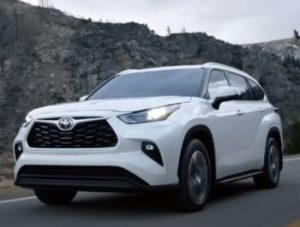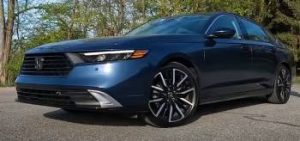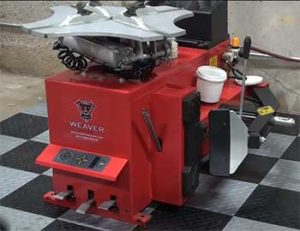So you’re shopping for an SUV? Right on! The open road, the city streets, and every adventure in between call for a ride that can handle it all. But you’re stuck between the Honda CR-V and the Chevy Equinox, eh? It’s a tough call. I mean, both cars have their fans, and both bring something unique to the table.
This article’s gonna help you decide which SUV reigns supreme, by comparing key features, performance, safety, and more.
A Brief Comparison Table
| Feature | Honda CR-V | Chevy Equinox |
| Engine Options | 1.5L turbocharged | 1.5L or 2.0L turbocharged |
| Fuel Efficiency (mpg) | 28 city / 34 highway | 26 city / 31 highway |
| Infotainment | Functional but complex | User-friendly and intuitive |
| Interior Space (cubic ft) | Up to 75.8 with rear seats folded | Up to 63.9 with rear seats folded |
| Safety Features | Honda Sensing Suite | Chevrolet Safety Assist + Teen Driver |
| Reliability | High | Moderate |
| Resale Value | High | Moderate |
| Price | Higher starting price | Lower starting price |
| Trim Levels | LX, EX, EX-L, Touring | L, LS, LT, Premier |
The Face-Off: Honda CR-V Pros
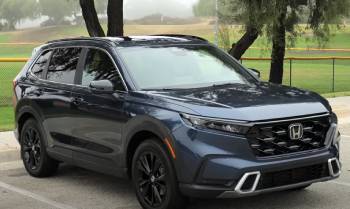
Let’s start with the CR-V, shall we? If the Honda CR-V were a high school kid, it’d be that straight-A student who’s good at sports, always reliable, but still knows how to have fun.
- Fuel Efficiency
The CR-V is a total star when it comes to fuel efficiency. The 2021 model, for instance, gets 28 mpg in the city and 34 mpg on the highway. That’s insane for an SUV!
- Interior Space & Comfort
When it comes to interior roominess, the CR-V is like a Manhattan loft on wheels. The cargo space is generous, and the rear seats can be folded down flat for even more space. Plus, the seats are just so darn comfy.
- Safety Features
Safety-wise, Honda CR-V doesn’t skimp. The Honda Sensing Suite includes adaptive cruise control, collision mitigation, and lane-keeping assist. Because you know, better safe than sorry.
- Reliability
The Honda brand itself is synonymous with reliability. This SUV is built to last, and the likelihood of experiencing issues down the road is quite low.
But Wait, Here Come the Cons
- The Price Tag
Let’s be real; the Honda CR-V is not the cheapest option out there. Its quality and features come at a cost.
- Infotainment System
The infotainment system could be a bit more intuitive. For a car this modern, you’d expect a little less fumbling around with the controls.
Also Read: Differences Between Mobil 1 Truck & SUV And Extended Performance Oil.
Chevy Equinox Enters the Ring: The Pros
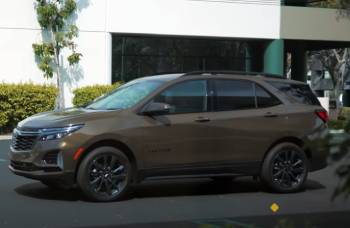
Alright, let’s switch gears and talk about the Chevy Equinox. If the CR-V is the over-achiever, the Equinox is the all-rounder who knows how to hustle.
- Engine Options
One area where the Chevy Equinox takes the cake is engine options. You can choose between a 1.5L or a 2.0L turbocharged engine, which means more flexibility for you.
- Infotainment System
Unlike the CR-V, the Equinox’s infotainment system is straightforward and user-friendly. Android Auto and Apple CarPlay are standard, too.
- Safety Tech
Chevy’s not lagging behind in the safety department either. Features like the Teen Driver system and the Safety Alert Seat provide additional peace of mind.
The Equinox Cons: Where It Falls Short
- Fuel Efficiency
While it’s not bad, the Equinox’s fuel economy isn’t as great as the CR-V’s. You’ll get 26 mpg in the city and 31 mpg on the highway.
- Reliability
In comparison to the Honda CR-V, the Chevy Equinox doesn’t score as highly in long-term reliability.
Digging Deeper: Key Differences Between Honda CR-V and Chevy Equinox
Look, we know that cars are more than just four wheels and an engine. There are nuances, features, and little quirks that can make or break your decision. So, we’re gonna dive deeper into the key differences between the Honda CR-V and Chevy Equinox. Buckle up!
Performance: Engines and Drivability
When it comes to performance, the two SUVs take different approaches. The CR-V typically offers a single, turbocharged 1.5-liter four-cylinder engine that boasts impressive fuel efficiency. You’ll get a smooth, comfortable ride, but don’t expect the CR-V to turn into a racecar.
Chevy Equinox, however, gives you options. You can opt for a 1.5L turbo engine if you want something comparable to the CR-V. But if you want more kick, there’s a 2.0L turbocharged engine option, which turns up the performance a notch.
Tech Features: Infotainment Systems
Honda CR-V’s infotainment system, despite being functional, doesn’t exactly win a user-friendly award. It takes time to get used to, and the touchscreen can sometimes feel laggy. It does come with Apple CarPlay and Android Auto, though.
The Equinox, on the other hand, nails it in this department. The interface is intuitive, and you’ll feel right at home with its responsiveness. Android Auto and Apple CarPlay come standard, making your life just that bit easier.
Interior and Cargo Space
We’re talking about SUVs, so space matters, right? The CR-V excels in offering a spacious, comfortable interior. The rear seats easily fold down, providing up to 75.8 cubic feet of cargo space. The legroom is also plentiful.
Equinox offers a comfy interior but falls a bit short in terms of cargo space. You get 63.9 cubic feet with rear seats folded. But hey, the quality of the materials and design are pretty top-notch.
Safety Features
Both SUVs are armed to the teeth with safety features. But the Honda Sensing Suite in the CR-V is something to write home about. It comes with collision mitigation, road departure mitigation, adaptive cruise control, and lane-keeping assist.
The Equinox counters with the Chevrolet Safety Assist, offering features like automatic emergency braking, lane-keeping assist, and a following distance indicator. Unique to Equinox is the Teen Driver system, which lets you monitor the driving habits of the younger ones in your family.
Reliability and Resale Value
Honda CR-V is like that old friend who never lets you down. It scores high in reliability tests year after year. Plus, Hondas generally have great resale value.
Chevy Equinox isn’t necessarily unreliable, but it doesn’t score as high as the CR-V in long-term reliability tests. The resale value isn’t as high either, which could be a consideration for some buyers.
Price and Trim Levels
Honda CR-V may have a higher initial price tag, but remember, you’re paying for long-term reliability and impressive fuel efficiency. It offers various trims like LX, EX, EX-L, and Touring, each adding more features and luxury.
Chevy Equinox is generally more budget-friendly at the entry-level, and the range of trim options—L, LS, LT, and Premier—allows you to tailor the car to fit your needs without breaking the bank.
Also Read: Mobil 1 Synthetic LV ATF HP Competitors.
The FAQ Section: Answering Your Burning Questions
It depends on what you prioritize. If you’re all about fuel efficiency and long-term reliability, the CR-V is your go-to. If you want more engine options and a better infotainment system, the Equinox might be your jam.
Both are compact SUVs, but the CR-V offers slightly more cargo space. However, when it comes to legroom and comfort, both are pretty comparable.
Both brands have their merits. Honda is renowned for reliability and resale value, while Chevrolet offers a wider variety of vehicles and engine options.
While it’s hard to claim that it’s the “most” reliable, the Honda CR-V consistently ranks high for its long-term durability.
While it’s a robust vehicle, the CR-V can be pricey, and its infotainment system could be more user-friendly.
The Honda CR-V is essentially the direct competitor to the Chevy Equinox in the compact SUV segment.
Conclusion
So there you have it, folks! Whether it’s the Honda CR-V or the Chevy Equinox that catches your fancy, you’re in for a treat. Both vehicles offer a compelling package, but your individual preferences will ultimately dictate which one takes the trophy. Happy shopping!
A thorough breakdown of the Honda CR-V and Chevy Equinox. Whatever you value most in an SUV, whether it’s performance, space, or long-term reliability, the ball is now in your court. Choose wisely and happy driving!

